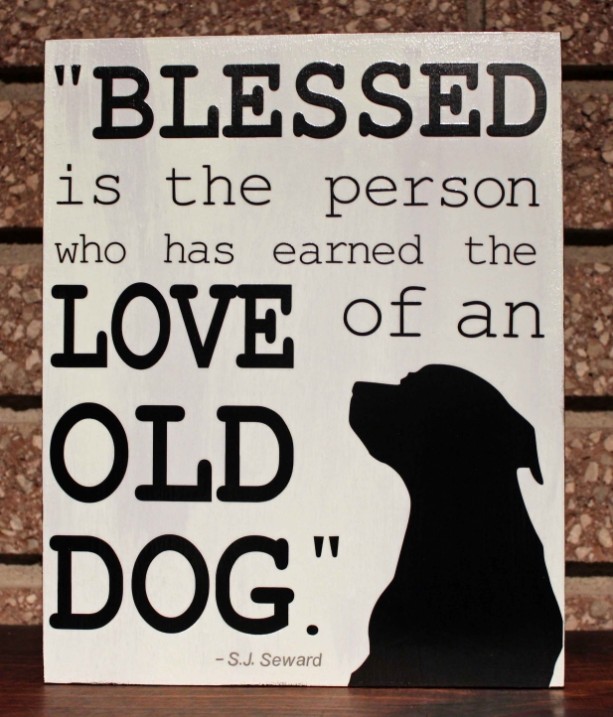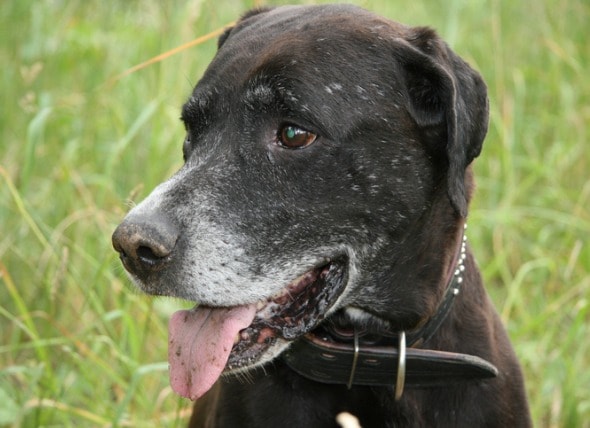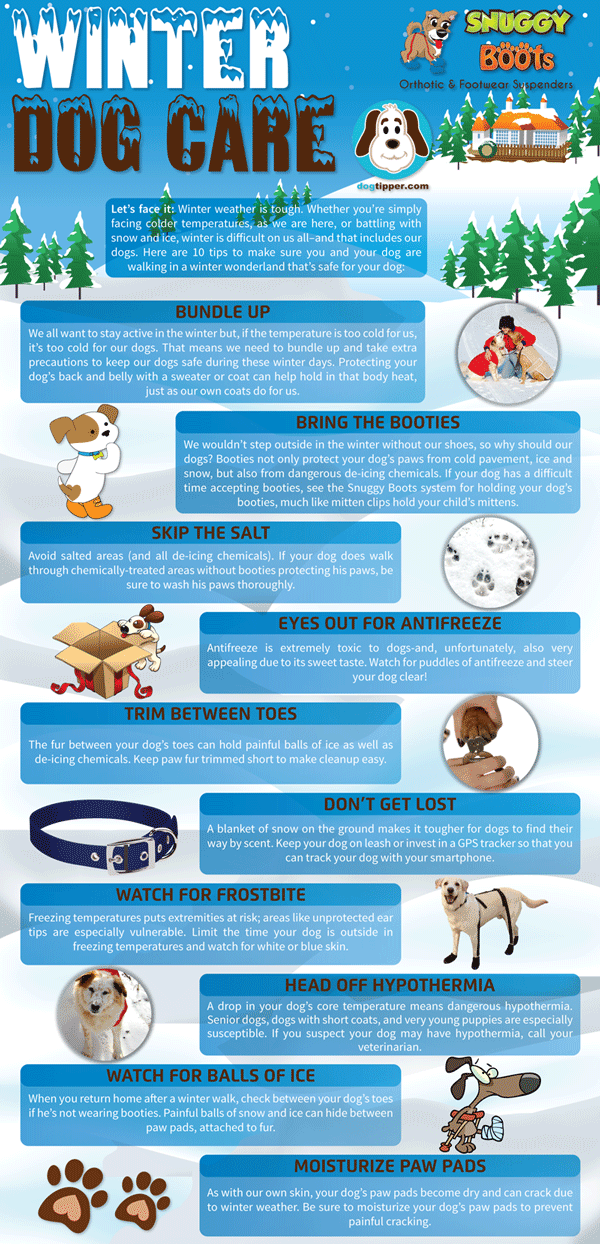
November is all about senior pet love! Here at McCleary’s we love our super seniors. Many changes occur as your best friend ages. We’re here to help. Preventative care is the best care, let’s ensure your pets golden years are the best ever, together!
Health Issues to Look for When You Have an Older Dog

All dogs get older. And like us, dogs age at different rates, especially dogs of different breeds and size. For example, giant breed dogs like Great Danes are generally considered to be a senior by roughly 5-6 years old, whereas a smaller breed dog like a Chihuahua would probably only enter the senior stage at 10-11 years. As your beloved dog enters his senior years, you should be prepared for certain changes that might occur in your dog’s health. Visit your veterinarian regularly; many vets recommend twice a year for senior dogs. If you notice any of the following issues, talk to your veterinarian to determine the course of treatment.
1. Vision Loss, Cloudy Eyes, and Other Eye Problems
2. Increased/Strained Urination, Bathroom Accidents
3. Bad Breath, Bloody Gums and Other Oral Problems
4. Lumps, Bumps and Other Skin Problems
5. Weight Gain or Loss
6. Difficulty Playing and Getting Around, or Slow To Do Something
7. Behavior and Memory Problems
8. Not Responding To You
9. Increased Sleep
10. Deteriorating Coat Condition
Common Problems with Aging Cats

You and your kitty have been together through thick and thin. As the years stretch into a decade, it can be easy to forget that your faithful companion isn’t the spry kitten she once was. She may not show any obvious signs of slowing down, but perhaps her last health check has you facing the fact that you love an aging cat that needs to be handled with extra care. Senior cat problems aren’t always easy to spot if you don’t know what to look for. Read on to learn how to recognize aging cat issues and how to best care for your senior cat.
Is Your Cat a Senior?
While once cats were considered “senior” at the ripe old age of eight, thanks to advancements in nutrition and veterinary medicine and more and more cats being kept indoors, it’s no longer unusual for a cat to live well into her teens or even into her twenties. However, despite the lengthened lifespan, cats still reach their senior years around the age of 7. While this seems very young for a cat that might have more than half of their life left to live, it is important to realize the changes in their biology. Think of it this way: even though humans are living longer these days (some into their 90s or 100s), they are still considered a senior citizen between the ages of 60 and 65. Even if you do not see any physical changes, it is still important to think of your cat in her proper part of her life cycle.
Signs of Aging in Cats
Typically, as a cat heads into the senior years she begins to show signs of slowing down. She may be less active and sleepier, points out Cornell University College of Veterinary Medicine. She might also be less inclined to jump or climb, and might even have difficulty getting to hard-to-reach places. Older cats are more prone to weight gain, although some aging cats lose weight instead. While some of these changes could simply be caused by your aging kitty having less energy than she once did, they shouldn’t be ignored. Any such symptoms could be signs of a serious health issue and should be discussed with your veterinarian.
Common Senior Cat Problems
Aging cat issues are often similar to those faced by humans. Older cats are susceptible to such problems as arthritis, obesity, vision and hearing problems and dementia, as well as a host of diseases such as diabetes, cancer, kidney or liver disease and thyroid problems. Aging cats are susceptible to dental issues like gum disease and feline tooth resorption, a disease in which teeth dissolve at the roots. Here are some signs that your cat might be experiencing one of these common senior cat problems:
- Difficulty or reluctance to try jumping or climbing
- Changes in weight
- Strange lumps or bumps
- Failing to use the litter box
- Appetite loss
- Diarrhea or constipation
- Incontinence or lack of urination
- Lethargy or listlessness
- Forgetfulness
- Excessive meowing, yowling, or other vocalizations
- Runny nose or eyes
- Cloudy eyes
- Bumping into objects
- Pawing at her eyes
- Excessive blinking
November is Adopt-a-Senior-Pet Month

November is National Adopt A Senior Pet Month–a month dedicated to helping older pets find loving forever homes.
Shelters and rescues across the country hope those looking to adopt a new furry friend will consider adding a senior pet to the family this month. If you love sweet senior animals, help spread the word throughout November.
There are numerous reasons that make older pets a great option for families looking to adopt a pet.…
- Calm, Cool, and Collected
- Family Friendly
- You CAN Teach an Old Dog New Tricks
- Commitment Issues
- What You See is What You Get
- Love
The list can go on and on, but most importantly, when you adopt a senior pet, or even share knowledge about the need for senior pet adoptions, you are truly saving a life. Check out all the pets in need of a new home at the Oakville & Milton Humane Society.
How to care for your older pet in winter

Our older pets can feel the winter chill much more than younger pets, so they may need some extra care in the colder months. You’re probably already used to making adjustments over winter for your pet. As our pets age they become less resilient to the cold and bad weather and you may need to make a few more preparations.
General tips
- Provide an extra warm bed. You may find that you provide extra bedding over winter anyway, but older pets will appreciate even more. A plug-in heat mat (with an auto shut-off to prevent burns or fire risk) underneath their bedding can help keep things cozy and soothe older pets’ joints.
- Keep your pets active. Keeping your older pets gently physically active over winter will help them keep warm and healthy.
- Regular check-ups. Remember to continue getting regular check-ups with your vet, especially if anything changes with their health over the winter period.
- Don’t overfeed them. It might be winter, but your pet doesn’t need any additional food. ‘Winter fat’ can actually put more pressure on their joints. Continue to feed them a complete pet food – ideally one made especially for senior pets.
Winter care for older dogs
Some extra precautions for caring for your elderly dog include:
- Get them a coat for walking outside. Older dogs may feel the cold more, especially if they are a short haired breed. Getting them a dog coat can help keep them warm.
- Consider whether dog boots would help them. When it’s icy, older dogs may find it more difficult to balance. Dog boots can give them the extra grip they need.
- Keep them warm after bath time. If you bath your older dog, make sure they are able to dry off straight away so they don’t get cold. Towel off short haired pets. Longer haired pets may benefit from use of a hairdryer if they don’t mind the noise, but make sure it’s on a low setting to avoid burns.
- Consider alternative exercise. Your older dog might be a little reluctant to go walking in the cold. It’s still important to keep them active. Check out these tips for exercising older dogs.
- Take them for a swim .There are lots of indoor dog swim centers that are popping up with nice 85-degree water, perfect for old joints. This is a great way to exercise your senior dog in the winter (or any time). Talk your doctor before starting any exercise routine, especially if your dog has a medical condition. And of course, make sure your pup is nice and dry before heading back outside.
- Don’t forget grooming! It can be tempting to forgo grooming in the winter months, under the illusion that it will keep them warmer. However a matted, dirty, or coat full of dead undercoat actually works against your pet, and can lead to skin and irritation issues. Regular brushing also stimulate the skins natural oils to keep the coat glossy and healthy through the winter months.
Winter care for older cats
Adapting Its Living Environment
Place its litter box in a warm room. If you keep your senior cat’s litter box in the basement or garage, move it into a warm room indoors during cold winter months. Older cats do not handle the cold as well as younger cats, so forcing them into a cold, damp place to relieve themselves can cause them a great deal of discomfort.To make this transition, it is best to introduce a second litter box in the new location (e.g. in the laundry room or bathroom) and leave the old litter box where it is, to avoid confusion and to let your cat get used to the new option. If you don’t have a warm room to put the litter box in, try putting a space heater near the litter box so it’s not as chilly.
Keep the heat on when you leave. While it might seem like an budget-friendly choice to turn down the heat when you leave for work or go out on the weekend, the colder environment might be unpleasant for your senior cat. Leave the thermostat at a moderately warm temperature, keeping in mind that a senior cat will be far more susceptible to the cold, particularly if it is thin. Make sure that the cat has spots to warm up in if it feels a chill, such as a warm cat bed, fuzzy blanket, or a comfortable cushion placed in a sunny spot.
Move furniture into sunny spots. If your senior cat has a favorite piece of furniture to sit or lie on during the day (e.g. a cat bed or favorite chair), move it to a spot that gets a lot of sunlight during the day. Your cat will likely gravitate to sunny spots for warmth during cold months, so moving its preferred resting spot will keep it happy and comfortable through winter. Avoid moving too many things around at once, however, as change can cause stress in senior cats. Make sure your senior cat can still access their favorite furniture after you move it.
Buy a heated cat bed. Look online or at your local pet store for a heated bed for your senior cat in the winter. These beds may feature inner heating elements or thermo-reflective material, which uses your cat’s body heat to warm the bed. If your cat has a tendency to burrow itself under your blankets or seek closed environments (e.g. hiding under your bed), opt for an A-frame heated cat bed, which will provide warmth and an enclosed shelter for your pet. You can also use a regular heated blanket and turn it into a bed for your cat. Keep it on the lowest setting so it’s not too hot for your cat, and never leave it on when you’re not at home.
Keeping Your Cat Healthy
Keep your cat indoors. To keep your senior cat safe and healthy during the winter months (and all year round), keep it indoors. Cold weather can cause frostbite and hypothermia in cats, particularly older ones whose immune systems are not as strong as they used to be. Senior cats have a compromised ability to keep their body temperatures from falling below normal, and should be kept indoors in warm, heated temperatures to prevent illness.
Make sure that your cat is hydrated. Heating during winter months can cause dryness in the air, which can be especially risky for senior cats who are already prone to dehydration. Get a humidifier for your home, which will raise moisture levels in the air and prevent dry skin and irritation. Make sure to leave out extra water for your cat to drink, preferably in different spots of the house so that your senior cat doesn’t have to travel too much to quench its thirst.
Monitor its weight. Be sure to monitor your senior cat’s weight once a month to maintain an ideal balance. An underweight cat is likely to have difficulty keeping warm, while carrying extra weight might aggravate conditions like arthritis, which plagues many older cats. To get a general idea of what your cat weighs, weigh yourself on your regular scale, then weigh yourself holding your cat, and subtract the difference. If you wish to get a more precise reading, buy a digital scale for babies to weigh your cat. Most house cats should weigh about 10 pounds, but this can vary by breed. Ask your veterinarian what a target weight for your cat should be.
Adjust your cat’s diet. Consult with your veterinarian before conducting any dietary changes. Protein can help your senior cat keep its coat thick and healthy during the cold months. Feed your cat canned food if you are able. You can also supplement your cat’s diet with oils containing healthy fatty acids (e.g. fish oil) to fortify and thicken its fur. Ask your veterinarian about the correct dosage of fish oil for your pet, available in capsules that can be given to your cat directly or pierced and squeezed into its food.
Keep your cat active. Get specific recommendations from your veterinarian about how frequent and intensive your senior cat’s exercise routine should be. Make sure that your cat gets a moderate level of activity every day, which will improve blood circulation to keep your cat warm. Play chasing or hunting games (e.g. throwing a toy mouse for it to catch, or having it chase the red dot from a laser pointer) or purchase puzzle toys from a pet store for your cat to play with at its leisure. If your cat demonstrates signs of fatigue, shortness of breath, or injury, stop the play immediately and contact your vet if it persists. Make sure that your vet has checked your cat for vision and mobility problems before engaging your cat in play, which may be dangerous for an impaired pet.
Be gentle when handling your cat. The cold can wreak havoc on the joints of senior cats during winter months, causing pain, tenderness, and stiffness. Be gentle when picking up your cat, placing your hand firmly under its body behind its front legs, and using your other arm to gently cradle its hindquarters as you raise it up. Be equally gentle when cuddling or playing with your cat.
